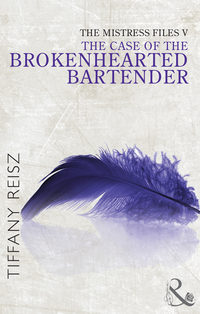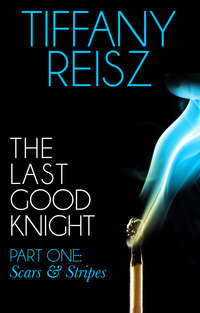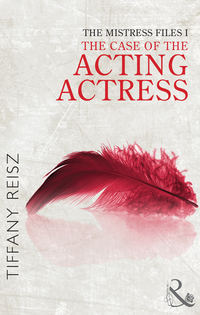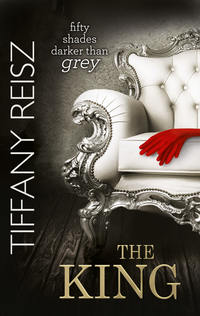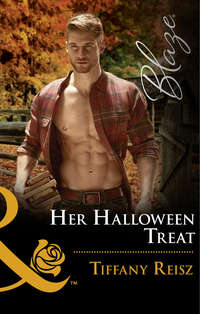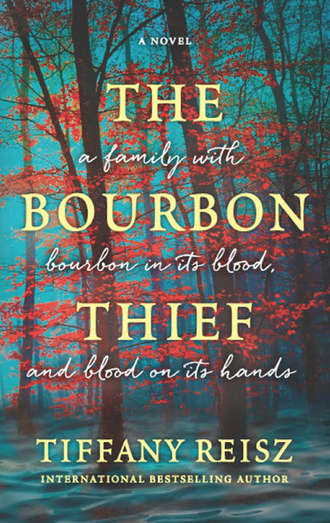
Полная версия
The Bourbon Thief
“Raymond Chandler.”
“Because, as you said in the interview, ‘I’m a sucker for a femme fatale. Give me a girl with a black heart in a red dress and I’m a goner.’”
“You thought you could seduce me because I read Chandler?”
“And your last girlfriend was a dark-skinned Knicks City Dancer from Puerto Rico, so I knew I had a very good shot at you. I’m your type, aren’t I?”
“I don’t have a fetish for dark-skinned women, if that’s what you’re implying.”
“I wasn’t implying anything, but you immediately seemed to think it was what I was implying. Methinks the billionaire doth protest too much.”
“Of all the bars in all the world...you walked into mine to steal my bourbon. You know, stealing something worth a million dollars is a felony.”
“I know. But I won’t call the police on you if you don’t call the police on me.”
“I didn’t steal it.”
“You bought stolen goods. Also a felony.”
“That bottle wasn’t stolen.”
“I know it was.”
“I told you, Virginia Maddox sold it—”
“It didn’t belong to Virginia Maddox. You can’t sell what you don’t own. And I was happy to buy it from you and avoid an unpleasant legal battle, but as you refused to sell it, I had no choice but to repossess it,” she said with the slightest sinister hiss.
“How do you know all this? How do you know everything you think you know about Red Thread?”
“I am Red Thread,” Paris said with the slightest sigh like she was admitting to a bad habit.
“Red Thread is dead.”
“A nice rhyme. You should have been a poet.” She raised her chin toward the filing cabinet. On top of it sat the bottle. “Look at it. Read the label. Tell me what it says.”
McQueen knew what the label said, but he took the bottle anyway and held it label side up toward the light.
The label was faded and yellowed, close to peeling. It was a hundred and fifty years old, after all. The font was an elegant script that said “Red Thread—Kentucky Straight Bourbon Whiskey.” Beneath those words it read “Distilled and bottled—Frankfort, Kentucky.” And underneath that in tiny script he read, “‘Owned and operated by the Maddox family, 1866.’”
“There we go,” Paris said.
“Where do we go?”
“Owned by the Maddox family.”
“You aren’t the Maddox family.”
“Are you saying that because they were white and I’m not?”
“I’m saying that because I’ve looked for the Maddox family for years, and I haven’t found a single one of them, by blood or by marriage, who had anything to do with Red Thread. The whole Kentucky line died or disappeared after the distillery burned.”
“Why did you look for us?”
“First of all, I don’t believe you are a Maddox. You’re going to have to show me some proof.”
“You’re holding the proof in your hands. One hundred proof.”
“Funny.”
“Oh, yes,” she said with an exaggerated Southern drawl. “I’m a card. Why were you looking for us?” she asked again.
“I wanted to buy Red Thread. What’s left of it. I’ve been wanting to open my own distillery for years. Red Thread is part of Kentucky history. I’d like to be part of Kentucky’s present.”
“Some things are better off history.”
“Bourbon isn’t one of them.”
“It’s too late anyway, Mr. McQueen. Someone else beat you to it.”
“Beat me to what? Buying Red Thread?”
“Reopening the distillery. Under a new name, of course. And under new management.”
McQueen understood at once.
“You,” he said. “You’re Moonshine, Ltd.? I tried to contact you.”
“That’s my company, yes.”
“You own the old Red Thread property?”
“Owner, operator and master distiller.”
“You?”
“You don’t think a woman can be a master distiller? I have my PhD in chemistry. You can call me Dr. Paris if that sort of thing turns you on.”
“I get it,” McQueen said, nodding. “I do. This is the first ever bottle of Red Thread, the original bottle. Part of the company’s history and you want it because you own Red Thread now. Makes sense. I’m even sympathetic. I might even have loaned it to you to put on display when the company reopens for business. But now you’ve pissed me off. And if you don’t tell me one very good reason why I shouldn’t call the police, I’m picking up the phone in three seconds. Three...two...”
“I can tell you what happened to Red Thread,” she said. “I can tell you the whole story. The whole truth.”
Well.
That got his attention.
“You know why it burned down?”
“I know everything. But if I were you, I wouldn’t ask. By the time I’m done telling you the story, you’ll hand over that bottle with your compliments and an apology.”
“Must be one hell of a story, then.”
“It’s what brought me here, the story.”
“Your story?”
“My story. I inherited it.”
“I think I’d rather inherit money than a story.”
“I have that, too, not entirely by my choice.”
“You don’t want to be rich?”
“God favors the poor. But don’t tell rich people that. It’ll hurt their little feelings.”
McQueen sighed and sat back. He buttoned the middle buttons of his shirt, crossed his leg over his knee. He should call the cops. Why hadn’t he called the cops? Embarrassed he’d fallen for the oldest trick in the book? Beautiful woman in red goes home with him, fucks him and robs him while he sleeps. He could laugh at himself, but he wouldn’t let anyone else laugh at him. Yes, he could call the cops.
Or...
“They call bourbon the honest spirit,” he said. “You know why?”
“You aren’t legally allowed to flavor it with anything. Water, corn, barley, rye and that’s it. You see what you get. You get what you see. No artificial colors. No artificial sweeteners. No artificial nothing.”
“Right. So let’s drink a little honesty, shall we?”
“If you’re buying,” she said.
“I’m always buying.”
He picked up the bottle and slipped it into his pants pocket. He opened the door of the security shed and Paris stepped out into the warm night air. Almost 2:00 a.m., he should be in bed now. He’d hoped to be in bed with her. One of these days he’d learn. Not today apparently.
“Boss?” James asked, dropping his cigarette on the ground and crushing it under his boot.
“A misunderstanding.” McQueen had his hand on the small of Paris’s back. “Don’t worry about it.”
“Got it. Sleep well, Mr. McQueen.”
As they walked back into the house and up to his drinking closet, McQueen considered the possibility that he might be making the worst mistake of his life.
“Sit.” McQueen pointed at the jade sofa and Paris sat without a word of protest.
McQueen took the key from the silver bowl and put the bottle of Red Thread back into the cabinet.
“I shouldn’t have trusted you.” McQueen locked the cabinet and slipped the key into his pocket.
“You’re a rich white man. Not your fault for assuming the entire world is on your side. It must seem like it most days. Usually you’d be right, but times, Mr. McQueen, are a-changing.”
“That sounds like a threat.”
“Sounds like Bob Dylan to me.”
He needed a drink, a stiff one, so he poured each of them a shot. The entire time he kept an eye on her as he unscrewed the cap and measured out the bourbon. Now she seemed calm, but it wasn’t the calm of surrender. This was a cat’s version of calm. A calm that could turn into an attack or a run in an instant.
When she had her shot in hand and he had his, he lifted it in a toast, a toast she didn’t return. Instead, she merely sipped her bourbon.
“Pappy’s?” she asked.
“It is. You have a good palate.”
“You can taste the leather in it.”
He couldn’t, but it impressed him she could.
“You weren’t exaggerating. You do know your bourbon,” he said.
“They used to say that about the Maddoxes,” she said. “Ever since Jacob Maddox started the distillery and made himself a wealthy man in five years...they said it about all of us—the Maddoxes have bourbon in their blood.”
“I’ve seen the Maddox family tree. There is no Paris on it.”
“Perhaps you were looking at the wrong branches,” she said coldly.
His words had hit a sensitive spot and her eyes flashed in a familiar way. It was not his first encounter with her sensitive places, after all.
“Now that we both have an honest spirit in our hands,” McQueen said, “tell me something.”
“Anything,” she said, although he doubted the sincerity of that declaration. She was proving to be altogether miserly with her explanations and answers.
“Did you sleep with me just to steal my bottle?”
“Does that sting? I bet it stings.” She winced in feigned sympathy, shaking her head and clucking her tongue like a mother tending to the skinned knee of her child. Right then and there he made a realization—he didn’t like this woman, not at all.
“I think I could fuck you a thousand nights and never actually touch you.”
“Don’t feel bad,” she said. “You’re not the only one with rock fences around you. Built by the same people, too, as a matter of fact.”
“Irish immigrant stonemasons hired by my great-grandfather?”
Paris’s eyes widened slightly. Then she laughed. Finally. He knew he’d scored a point on her. True, most of the rock fences in Kentucky were built by slave labor. His was not, however, and somewhere he had the paperwork to prove it. While he didn’t know the game he and Paris were playing, he knew that while he wouldn’t win it, if he played it well enough, he might not lose it.
“You’re funny. And you’re handsome.” She tossed the compliment at him like a dollar bill at a stripper’s feet. “If it makes you feel any better, I didn’t have to fake anything with you. If I hadn’t wanted to sleep with you, I wouldn’t have. It was convenient that you were attractive. Otherwise, I might have simply hired someone to break into the house while you were away. Does that help?”
“I feel so much better now,” he said. “While we’re being honest...is it true? You’re widowed?”
“I am. Widowed at thirty-four.”
“Awfully young to lose a husband.”
“Not my husband, although he died too young for my liking. He was twenty-eight years older than I am.”
McQueen nearly choked on his Pappy’s. The youngest woman he ever slept with was eighteen years his junior and that relationship had lasted about as long as a bad movie.
“Twenty-eight. I guess that’s what they call a May/December romance.”
She smiled and it was a debt collector’s smile, and something told him she had come to make him pay up. “Twenty-eight years? That’s a January/December romance in a leap year.”
McQueen chuckled and raised his glass to her.
“What?” she asked.
“You get enough bourbon in you and you sound like a real Kentucky girl.”
“I am a real Kentucky girl. Born in Frankfort a stone’s throw from the Kentucky River. That’s not an exaggeration. With a good arm, you could hit the river from our porch.”
“That’s not a good neighborhood.”
“It was the only neighborhood we had. If you have a roof over your head and food in the fridge and nobody breaking down your door, it’s a good neighborhood.”
McQueen tried to take another drink of his bourbon and found his shot glass empty. He set it down again on his knee.
“So you slept with me and stole a million-dollar bottle of bourbon. You must really want that bottle.”
“I don’t want it, no. But I need it.” For the second time that night he saw a glimpse of the real woman behind the mask of the femme fatale, the woman in red. A determined woman.
“For what?”
“To finish something someone else started.” She glanced down at the bourbon in the glass she’d balanced on her knee. “You know what a bourbon thief is, Mr. McQueen?”
“It’s a sampling tube,” McQueen said. “You stick it in the bunghole of a bourbon barrel and extract the contents for tasting.”
“Isn’t that one hell of a visual metaphor?” Paris asked.
McQueen laughed big and long and loud.
“What’s your point?”
“Do I look like a bourbon thief to you?”
“You look like a woman who’s never stolen anything in her life.”
“I haven’t. That bottle belongs to my family. You will return it one way or another.”
“Apparently I’m going to give it to you by morning in exchange for a story. That’s quite a feat.”
“It’s quite a story.”
“Go on, then.”
McQueen looked at her as she crossed her long legs, pulled her hair over her shoulder and met his eyes without a hint of fear even though she was on the hook for a million-dollar heist. It made him nervous, what she was about to tell him, but he wanted to know. Knowledge was power and power was money, and no man ever got rich buying stock in ignorance.
“On December 10, 1978, two very important events in the history of Red Thread occurred—the Kentucky River broke its banks and crested at a record forty-eight feet, and the granddaughter of George J. Maddox, the owner of Red Thread Bourbon Distillery, turned sixteen years old. That was the beginning of the end of Red Thread.”
“What was? The river flooding?”
Paris gave him a smile, a smile that made him momentarily rethink his decision to not call the police.
“Tamara Maddox.”
3
Veritas
1978
Tamara Maddox wanted to ride her horse the morning of her sixteenth birthday.
And whatever Tamara Maddox wanted to do, Tamara Maddox did.
In all fairness to the girl, spoiled as she was and she knew it, anyone would have wanted to get out of that house and any excuse would do. They’d been fighting again, Granddaddy and Momma. If only they yelled, that would have been one thing, something Tamara could roll her eyes at, laugh at, ignore by turning the volume up on her radio. But no, they whispered their fights behind closed doors, hissing at each other like snakes. Neither of them had the courtesy to tell her what they were fighting about, so Tamara assumed they were fighting about her.
Fine. If they wanted to fight on her birthday, she’d leave them to it. She had better things to do. And the urge to go riding only grew when she saw a blue Ford pickup truck with a white cab wheezing its way down the drive to the stables. What was Levi doing here on a Sunday? She hoped it was because he knew it was her birthday, but even Tamara Maddox wasn’t spoiled enough to think that was the case. Still, one more reason to go riding when one reason—she wanted to—was more than enough for her.
Tamara changed out of her pajamas and into her riding clothes—tan jodhpurs, black boots, a white blouse and a heavy coat—braided her long red hair and raced out to the barn. It was cold today—only forty-five by the thermometer in the barn—but she’d ridden in worse weather. Plus, the rain had stopped finally, and she’d been going stir-crazy inside the house. All she needed was an hour outside in the air with Kermit, her pale black Hanoverian pony, and everything would be all right again.
And if it wasn’t, at least she’d see Levi today, and if that didn’t make a girl feel better, nothing on God’s wet green earth would.
Levi barely acknowledged her when she ran into the barn. Nothing new there. She had to work for his attention and she worked for it very hard. In the summer she’d often catch him shirtless as he mucked out stalls and threw hay bales around. In winter she had to content herself with the memories of his lean strong body that she knew was hidden under his brown coat with the leather collar and a chocolate-colored cowboy hat. Mud crusted his boots. He had dirt on his cheek. And if he got any more handsome, she would die before she hit seventeen. She would simply die of it.
Tamara walked up to him as he was carrying a bale of straw and knocked on his shoulder like she was knocking on a door.
“Nobody’s home,” Levi called out before she could say a word.
“I would like to ride my horse right now, please and thank you.”
“Nope.”
“Nope? What do you mean nope?”
“I mean, nope, no, no way. You can’t ride your horse right now, please and thank you.” Levi walked away from her, straw bale in hand, as if that were the end of it.
Tamara chased after him and determinedly knocked on his shoulder again. He dropped the bale.
“Why can’t I ride today?”
“It’s been raining for days. It’s too wet.”
“It’s not raining now.” She tapped on the glass of the window. “Look—it’s dry. Dry, dry, dry.”
“What part of no do you not understand, Rotten? The N or the O?”
“You shouldn’t call me Rotten,” she said, hands on her hips in the hopes he’d notice she had them. “It’s not nice.”
“I’m not nice. And I wouldn’t call you Rotten if you weren’t so damn spoiled rotten, so whose fault is it really? And again—the answer is no—N and O, no. Even you can spell that.”
He might have been right about her being spoiled rotten, not that Tamara wanted to admit that. Most days he was the only person in the county—other than her mother—who had it in him to say no to her.
“Oh, I can spell. I can spell frontward and backward, and no spelled backward is on, as in I’m on the back of my horse and on the trail for a ride.”
“And on my last nerve,” Levi said. He took his hat off and brushed his sleeve over his forehead. She wondered sometimes if he did this sort of stuff just to torment her because he knew she had a crush on him—not that she did much to hide it. He was a first-class gold-medal tormentor, that Levi. He was twenty-eight and she was only sixteen as of midnight last night, which meant there was no way in hell Momma or Granddaddy would let her date him even if he was more handsome than the men on TV. He had curly black hair and a crinkle-eyed devilish smile he aimed at her often enough to get her hopes and her temperature up. He had a good tan, too, all the time, even in winter, making her wonder how he kept his tan so good even in February...and whether all of him was that tan. These were important questions to one Miss Tamara Belle Maddox.
And when he called her Rotten, it made her want to jump on top of him every time he did it.
“You know, today’s my birthday,” she said. “You have to be nice to me on my birthday.”
“I don’t have to do anything but die and pay taxes. Unless you’re the grim reaper or the IRS, you don’t get any of my attention today. Today is my day off. I’m only here because this is the only time the farrier could come and see to Danny Boy’s shoes.”
She stared at him, eye-to-eye. Or as close to eye-to-eye as she could get. She’d come in at five foot six this year and he had to be at least half a foot taller than her. Still, she did her level best to stare him down.
“Levi.”
“Yes, Rotten?”
“I am the grim reaper. Now let me go riding or I’m going to tell Momma I caught you engaged in unnatural acts with Miss Piggy.”
“You mean your momma’s horse or the pig on The Muppets?”
“Does it matter?”
“It matters a helluva lot to me if I’m engaging in unnatural acts with one of them. I need to know who I’m sending flowers to after.”
“You are the meanest man ever born,” she said, shaking her head. “Where’s the pitchfork?”
“You finally going to clean out Kermit’s stall without me having to tell you twenty thousand times?”
“No. I’m going to stab you with it so many times we can use you to drain noodles.”
“It’s on the wall where it always is. Now if you’ll excuse me, I have to do anything that involves not talking to you anymore.”
Levi stepped away, but she stepped in front of him.
“Levi...” she said, her voice cracking in her desperation. “Please let me go riding today. It’s my birthday and I’ll clean the stalls and it’s my birthday and I’ll do whatever you tell me to do and it’s my birthday and—”
He sighed—heavily—and lowered his chin to his chest.
“What crime did I commit in a past life that brought me to this point in my current incarnation?” he said with a heavy sigh.
“You’re talking weird again,” she said.
“Karma,” he said. “I’m talking about karma. Which you would know nothing about as you are obviously so young and so dumb and so naive that the only way to explain it is that this is your very first incarnation. You are a baby soul in this universe. Only cause for your soul to be so wet behind the ears.”
“You know you love me,” she said. “You know I’m your favorite.”
“I don’t even like you, Rotten. Not one bit.”
“Oh, you like me. You like me many bits.”
“Love you or hate you, you can’t go riding. I have spoken.”
“You have to let me go. You work for us. You have to do what I say.”
He stared her down and that stare felt like a rolling pin or worse—a steamroller. She gave him a steamroller back.
“You don’t sign my paychecks, Rotten. I work for your granddaddy, not you.”
“I wish you worked for me. I’d pay you to kiss me and fire you if you didn’t.”
“I realize I’m the last man who needs to be stereotyping anyone, but apparently everything I ever heard about redheads is true.”
“Levi.”
“What?”
“They’re fighting again.”
Levi gave her a tight-lipped look like he wanted to be nice to her but it went against his grain.
“What is it this time?” Levi asked.
“I don’t know. They won’t tell me. But I know Momma wants to move out and Granddaddy doesn’t want us to.”
“Didn’t y’all use to live in your own house?”
She nodded. “We did until Daddy died.”
“You want to move out?”
“I’d rather live in here in the stable than in any house when they’re fighting like this.”
“That bad?”
“Yeah,” she said, then she grinned at him. “Plus, you’re out here. I’d trade Granddaddy and Momma both for you.”
“Good God, go. Go away. Shoo. Ride your damn horse and leave me alone. But if Kermit gets a leg stuck in a mudhole and throws you and breaks your neck, don’t come crawling to me to fix it. Your head’ll have to hang there on your shoulders all lopsided.”
“Merci, mon capitan.” She grabbed him by the arms, kissed both his cheeks and saluted him like she was a junior officer and he her French captain.
“You are out of your damn mind,” he muttered as she raced to Kermit’s stall.
“Can’t hear you,” she sang out. “I’m riding in the wind with joy at my feet and freedom in my hair.”
Levi unlocked the door where he kept their saddles. They were too expensive, she knew, too tempting for thieves. Also, Levi knew if he didn’t lock them up, she’d steal them to go riding whenever she wanted, which wasn’t what she wanted, though she would protest otherwise if asked. Half the fun of going riding was bugging Levi until he let her go.
Once she’d saddled Kermit, she led him out to the riding trail that began at the end of the paddock. She hadn’t been too keen on the idea of moving in with her granddaddy after her father died. She’d loved their old house, a rambling brick Victorian in Old Louisville, but there wasn’t much horseback riding in the city. No horses meant no stables. No stables meant no grooms. No grooms meant no Levi. Oh, yes, she’d gotten used to living out here in the Maddox estate, Arden, with her granddaddy pretty quick after laying eyes on her grandfather’s groom. But more and more her mother and grandfather had been fighting their ugly whispering fights, and Tamara hadn’t been kidding when she’d said she’d rather live in the stables than the big house.
Once out in the cold air, Tamara decided maybe a shorter ride was a better ride. Muddy trails meant a slow pace and a nervous pony. Her ears burned with the cold and her nose dripped. She swiped at it with her sleeve and was glad Levi wasn’t around to see that unladylike maneuver. She and Kermit picked their way down the main path that led through a couple hundred acres of trees. Fall had stripped the leaves off the trees, but there was still something beautiful about the barren forest. Not barren at all despite appearances. Not barren, but only sleeping. She sensed the sap under the bark, and the wood drinking up all the water in the ground from the days and days of December rain they’d had. Even bare the trees seemed brutally alive to her. They were bursting to wake up and release the green in them, counting the seconds until spring when they could stretch and bloom and eat warm wet air like candy.


